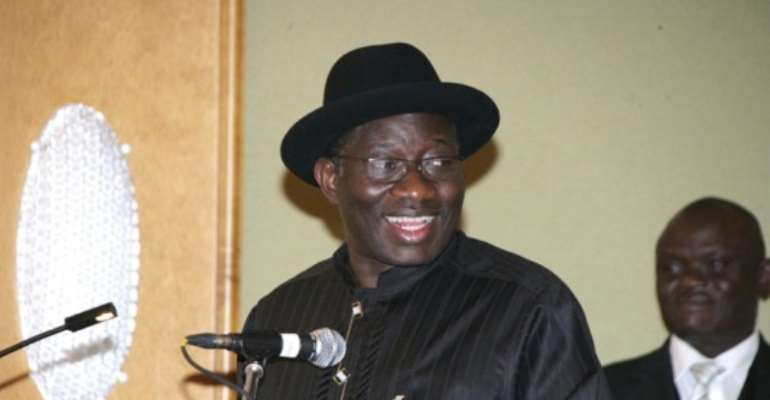President Jonathan's Full Speech On Roadmap Of Power Sector Reform

A friend of mine jokingly asked me: Can Nigeria celebrate one day of continuous (uninterrupted) power supply? Then I answered: "By God’s grace by December 2012, Nigeria will not just celebrate one day, but one week, one month, and even better. It’s actually with that vision and mission that we are here today to launch the Roadmap for Power Sector Reform.
We are today gathered here for a twin seminar event to launch our administration’s electric power roadmap and productively, engage the key stakeholders of the economy in a focused discourse on our plans to effectively tackle the critical challenge of the enormous electric power deficit and transforming the sector into the major driver of Nigeria’s economic development process.
My appraisal of the sector over the past few years has revealed that the factors that affect reliable electricity service delivery in Nigeria include the absence of a sustained and deliberately deployed long term power development strategy under exploitation of our abundant energy endowments and the absence of adequate and unknown implementation of reforms.
In order to fast track the resolution of all issues pertaining to power sectors, and achieving stability in electricity supply, I constituted two committees soon after I assumed office as President. These are the Presidential Action Committee on Power and Presidential Taskforce on Power. The Presidential Action Committee on Power is charged with the responsibility of providing leadership and guidance and to determine the general policy direction and strategic focus of power reform, the committee meets weekly.
The Presidential Tax force on Power is the engine room for the day to day planning, and it is charged with the responsibility of developing and driving forward the action plan of the Nigerian power sector, with achievable targets, especially with reference to the areas of Power generation, transmission, distribution, as well as fuel to power.
In drawing up this roadmap, we have identified tariff as the critical factor in resolving the entire value chain of supply of electricity. The idea is to ensure that the relevant agencies achieve a tariff structure that will give incentives to investors. We have also taken steps to reconstitute the National Electricity Regulatory Commission and the list of its members will be sent to the National Assembly on Monday next week.
I also took time to select a chairman that has similar credentials with the INEC Chairman. I decided to do so because we need a revolution in the power sector. We expect that those who will be in that commission will drive the process. I have declared that on the attainment of stability in the sector. Government will disengage from generation and distribution of electricity in the country. Government will encourage the private sector participation in these areas.
Therefore, as articulated in the electric power sector reform act, the private sector will be responsible for generation and distribution, while government will still own the transmission grid, but with private sector management. We are in the process of commissioning independent power producers, international oil companies to produce at least 5,000 megawatts of new capacity. These plants will begin production in 2012 and 2013. Government will provide the credit enhancement that will enable them invest in the construction of the power plants.
Coal will also be exploited in the next few years to install power plants in places as Gombe, Kogi, Enugu and Benue. However, the largest resources from fuel to power will come from Natural Gas. Government plans to exploit this asset to its fullest by converting flared gas to domestic application for power application. In line with the electric power reform act, the power bulk trader which the bureau of public enterprises has now incorporated will have credit backing of federal government to purchase power from private power providers and sell to the distribution companies. These bulk traders should be in full operation in less than two months from today.
The key factor to realizing government goals in the power sector is appropriate tariff regime. The tariff on electric power in our country today is much lower than what is paid in countries across the West African sub region. The present tariff regime will be adjusted in line with government’s determination to provide reliable electricity to the consumers but this will be done in a way that it will not affect the ordinary consumer.
This administration has demonstrated sincere commitment in ensuring we meet government obligation to PHCN workers and have paid due attention to the concerns raised by the workers union. In this regard, we have provided through a supplementary budget, the sum of N57 billion required to address the arrears of monetized benefits of PHCN workers which has been outstanding for over 7 years.
